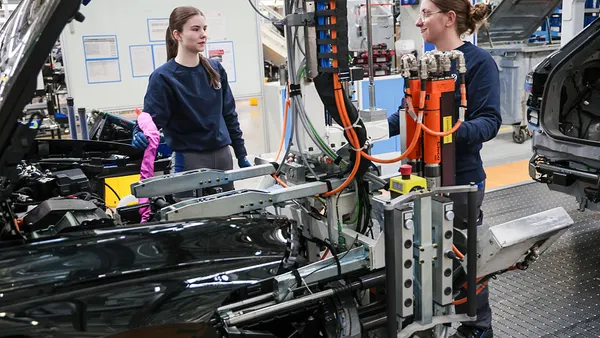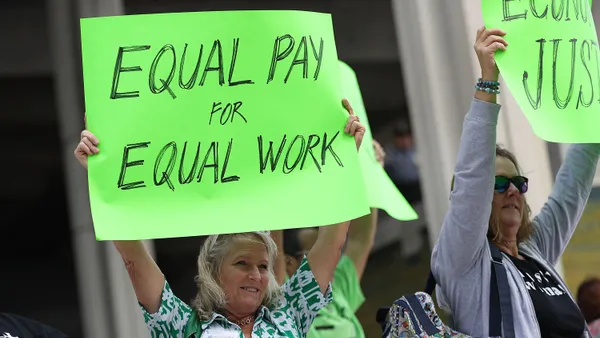Dive Brief:
- Employee retention and burnout are of utmost importance to employers, according to a Sept. 23 talent trends report from risk management company Gallagher.
- Of the more than 4,000 U.S. employers surveyed across industries, two-thirds of employers are concerned about the effects of stress and burnout on their workforce — but only a quarter of employers provide mental health training to managers, HR professionals or other leaders.
- To combat high turnover, companies can also turn to inclusion and diversity initiatives to help develop a strong organizational culture, Gallagher said. The majority of employers (74%) said they were implementing such initiatives in 2025.
Dive Insight:
Just this month, labor experts captured a similar snapshot of the current talent outlook. A Sept. 9 report from ManpowerGroup suggested that, more so than in years past, employers intend to maintain their current workforce numbers going into Q4. Organizations said they are focused on retention rather than hiring, the report found.
Some employers surveyed by ManpowerGroup even said they were looking to reduce their workforce further; only a small share of employers said they would be hiring more in Q4 2025.
When it comes to retaining talent, HR professionals can look to learning and development. The leading driver of employment is "career growth pathways," according to Gallagher researchers, more so than "trust and confidence in senior leadership."
"We're seeing a fundamental shift in what employees value — and it's forcing organizations to rethink just about everything so they can keep their talent," John Tournet, U.S. CEO of Gallagher's benefits and HR consulting division, said in a press statement.
A Sept. 9 report from Workday showed that top performers are leaving companies due to “stalled” career growth and that internal promotions are likely down in corporate spaces.
Despite potential backlash, some employers are sticking strong with diversity and inclusion initiatives, as data from Gallagher’s September report indicates. However, large employers are more likely than smaller companies to do so (84% vs. 67%), saying they view diversity and inclusion as a “stabilizing force” in the face of economic uncertainty.















